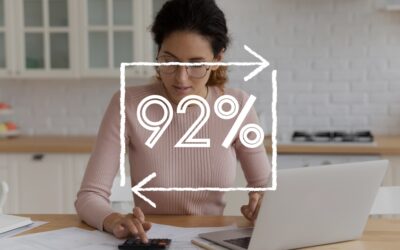For the best process, tenants should always pay the property management company directly, and then the property management pays the owner the remaining funds after all expenses are paid out.
However, in this situation, we have a tenant that keeps paying his rent in cash directly to the owner. We have asked the tenant multiple times to pay the property management, but he won’t comply. The landlord also won’t do anything about it because, “It’s nice getting some of my money in cash because I don’t have to wait until the 15th for my disbursement and I can spend this money right away.”
We still have to keep the owner’s financial reports accurate. Also, the owner should be paying income tax on all the money he receives, even when he gets paid with cash. We want this rent income reflected in the profit/loss statement.
The wrong way to record this transaction is to use “Tenant Credit” in AppFolio. When you use tenant credit, you basically tell the system that the tenant is getting a discount and doesn’t owe rent anymore. And then the actual rent income won’t be recorded properly in their profit/loss statement.
This is the right way to record the transaction:
Step 1
Confirm with the owner how much the tenant paid directly. Pull up the tenant’s ledger to see how much money the tenant owes. It should match the owner’s number.
Tenant Ledger Showing Balance Owed On Bottom
Step 2
Record Tenant Receipt.
Type “tenant receipt” in the search bar to pull up the page.
Task: Tenant Receipt
Enter the tenant’s name, their amount paid, today’s date, and add a remark that the tenant paid the owner directly so that when you look back, you can remember what happened here.
Tenant Receipt for Joel Shenk
Step 3
Record Bank Deposit.
Type “new bank deposit” in the search bar to pull up the page.
Task: New Bank Deposit
Check the tenant’s receipt. If there are other receipts, make sure the other receipts remain unchecked. Make the deposit.
Bank Deposit For Only Joel Shenk’s Receipt
Step 4
Record Owner Draw.
Type “owner draw” in the search bar to pull up the page.
Task: Owner Draw
Enter the owner’s name, the amount paid, today’s date, the property address, and the unit number.
The GL account should be “Owner Distribution.”
Owner Draw For The Unit That Joel Shenk Lives In, Direct Cash Payment
Step 5
Record Owner Draw Payment.
This is to record the fact the owner got the money. You cannot skip this. If you skip this step, you will accidentally pay the owner too much money later when you use AppFolio’s “Pay Owner” feature to automatically calculate how much money the owner is owed.
Click Pay Bill Now > Other Payment > Enter today’s date, payment method (cash), and a reference that the owner got the money directly.
Pay Bills Now > Other Payment
Recording The Payment To The Owner
Step 6
Check Your Work With Owner Statement (Enhanced).
Type “owner statement enhanced” into the search bar to pull up the report.
Reports: Owner Statement (Enhanced)
Take a look at the report for this property. It should show two transactions of the same amount: one where money is coming in from the tenant, and one where money is going out to the owner. Since it is an in/out of the same amount, they cancel each other out and the owner will not get paid extra money by accident.
Owner Statement (Enhanced) For This Property Showing Money Coming In, Money Going Out
Step 7
Make Sure To Check Off Both Transactions In The Bank Reconciliation Page.
Type “reconcile” into the search bar to pull up the page.
Task: Reconcile
Choose the bank account for the property in question.
There should be a deposit in the top window and a payment in the bottom window. They are the same date, same amount. They cancel each other out so they don’t affect your bank balance in AppFolio. Technically, the money never flowed through your bank account, but we have to pretend that it did. So check the boxes next to them and save.
Bank Reconciliation Page Showing Money In and Out, Checked Off As “Cleared”
If you have any other questions about AppFolio accounting, please book a free consultation with Annie Yang Financial Corporation and we would be happy to help you!

















Yeah do not do what this person just said. If you are a property manager, you are working with a trust account. If the money never hit the trust, and never went out to be paid to the owner, how can you reconcile a transaction that never happened (that’s not a journal entry of moving funds around). Remember, the Rent Income is set differently than other GL income accounts. If anything, this would be a transaction linked to a customized GL account that is set to "exempt from 1099s". Be careful taking accounting advise on the internet.
Excuse me? I clearly explained why it’s done this way. You reconcile this transaction because both sides cancel each other out. The incoming transaction (rent income) and the outgoing transaction (owner draw) are the exact same amount and you check both transactions off in the reconciliation window. More like be careful reading comments from people on the Internet who stay anonymous rather than revealing their real name. Unlike you, I’ll publicly put my full name and reputation on the line to help others. Have a wonderful day.